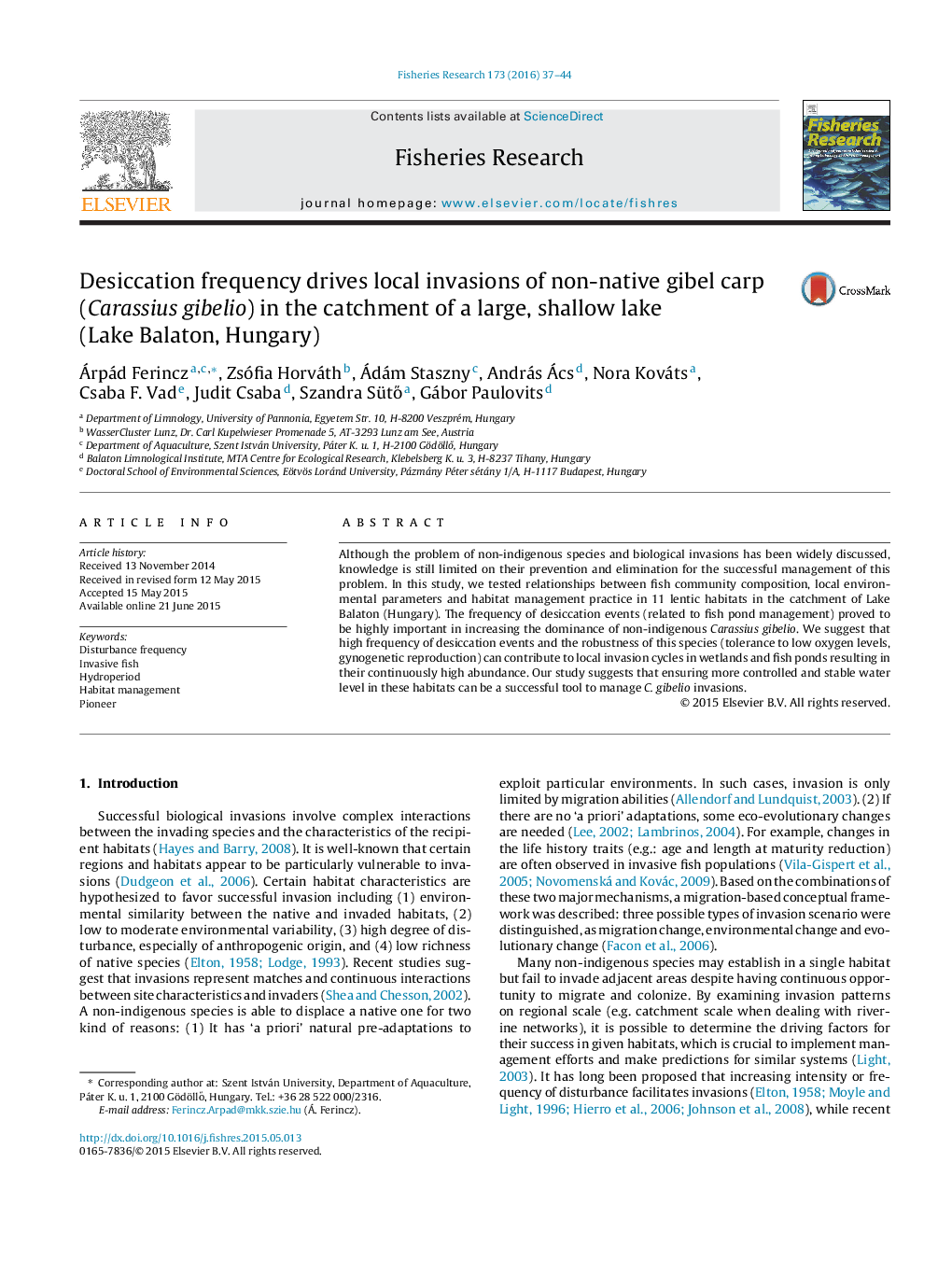| Article ID | Journal | Published Year | Pages | File Type |
|---|---|---|---|---|
| 4542809 | Fisheries Research | 2016 | 8 Pages |
Although the problem of non-indigenous species and biological invasions has been widely discussed, knowledge is still limited on their prevention and elimination for the successful management of this problem. In this study, we tested relationships between fish community composition, local environmental parameters and habitat management practice in 11 lentic habitats in the catchment of Lake Balaton (Hungary). The frequency of desiccation events (related to fish pond management) proved to be highly important in increasing the dominance of non-indigenous Carassius gibelio. We suggest that high frequency of desiccation events and the robustness of this species (tolerance to low oxygen levels, gynogenetic reproduction) can contribute to local invasion cycles in wetlands and fish ponds resulting in their continuously high abundance. Our study suggests that ensuring more controlled and stable water level in these habitats can be a successful tool to manage C. gibelio invasions.
